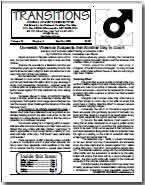Dustin Hoffman in 1979’s “Kramer vs. Kramer.” Children need their fathers!
How courts and the culture disrespect dad
By Barbara Kay / NEW YORK DAILY NEWS, Sunday, June 17, 2012, 4:47 AM
From the loving, engaged portrayals of fathers featured in recent popular movies like “The Descendants,” “Moneyball” and “A Better Life” — all three performances were nominated for Academy Awards — one might conclude American dads are culturally valued.
Look again. The mothers in these films are comatose, divorced or dead. It’s no coincidence. From Atticus Finch to today, there’s an unspoken Hollywood rule that fathers can’t shine too brightly in the face of active mothering. Dads are more likely to be accorded respect when they are “coping” — in effect, when they are surrogate mothers.
Sadly, it is not only in Hollywood where fathers get the short end of the stick. The culture reflects a painful and pervasive social reality: For all we talk about the value of fathers, we have been devaluing and discarding them for decades.
We must first diagnose this cancer. Then we must systematically work to cure it.
Why do fathers matter so much? Because fatherhood makes men out of boys, for one thing. And because typically they offer children a just as necessary but different kind of love and guidance from what mothers bestow.
Mothers give their children unconditional love. It can be argued that children need their mother’s love more in infancy and very early childhood than they need their father’s.
But from the moment they step into the world beyond their doorstep, their need for a father or father figure grows exponentially. They need his protection and guidance in handling the complexities and competing demands of school, adult authorities and sometimes difficult peers. Fathers give boys a role model for manliness and girls respect for themselves. Fathers give children strategies for negotiating their way in the world. They set standards to be respected. Their love may even seem conditional on those standards being met. That’s a good thing.
Father absence is devastating for children. Exhaustive peer-reviewed research confirms that the absence of a father is the single most reliable predictor for a whole roster of negative outcomes: low self-esteem, parental alienation, high school dropout (71% are fatherless), truancy, early sexual activity, promiscuity, teen pregnancy, gang membership, imprisonment (85% of jailed youth are fatherless), drug abuse, homelessness (90% of runaway children have an absent father), a 40 times higher risk of sexual abuse and 100 times higher risk of fatal abuse.
Today, 84% of custodial parents in America are mothers, a figure that hasn’t budged in three decades. Forty percent of the 236,000 children (in the 2009 census) whose fathers live outside the home have no contact with them. The other 60% had contact an average of 69 days in the last year.
These figures represent human tragedy on a massive scale for both disenfranchised fathers and their children.
Fathers suffer terribly when their children are wrenched from their lives. It’s no coincidence that men’s suicide rates skyrocket after divorce, while women’s rates stay flat.
This isn’t to say that every father is like the heroic father of the 1979 film “Kramer vs. Kramer,” a coping dad who, when forced to assume single parenthood, sheds his arrogance and workaholism to become feminism’s New Man — domesticated, patient and sensitive. Some men are immature jerks and mothers are right to sue for sole custody; some fathers have no instinct for fatherhood and mothers are forced to bring up children alone.
But the many good guys should not be obliged to pay for the sins of the losers.
Twenty years ago, Dan Quayle stepped into the crosshairs for questioning Murphy Brown’s choice to have a child on her own. But he was fundamentally right. Children need fathers. Our defensive, reflexive attacks on anyone who points this out — our suggestion that to say this is somehow to disrespect millions of hardworking single mothers — only makes the problem worse.
Why haven’t the facts around fatherlessness made a dent in the family law system? In a word, ideology. Judges aren’t trained in sociology or psychology, but they take courses in “social context” — and the people who write their training manuals toe the feminist line that where children are concerned, mothers mainly have rights, while fathers mainly have responsibilities.
Divorce is initiated by women 70% of the time. From the day they make that decision, the system colludes with them in gaining control of the children. Women can falsely allege violence or sexual abuse of children without having to prove it (unscrupulous lawyers often advise their women clients to do this). When they do, the father is often removed from the home while trying to prove his innocence.
The court will assign financial support obligations to the father. If the father fails to pay his support, even if he can’t, the heavy hand of the law will punish him instantly. But if the mother arbitrarily denies rightful access to the father, the court is reluctant to penalize her. As one Canadian judge told a family lawyer arguing for his client’s continually denied access rights, “It’s not my job to punish mothers.”
It is part of his job, actually, but this view is representative of most family court judges: Whether through a chivalric view of women as vulnerable creatures in need of their protection, or cowed by feminists into believing their mantra that men only want to “control” them, judges reflexively privilege mothers as the natural owners of children, and fathers as accessories to their lives.
And yet there are about four million lone fathers in America — through widowhood, or because their ex-wives didn’t want to mother, or were too dysfunctional to share parenting. This is an enormous control group about which we can learn much.
If mothers were better at parenting than fathers, surely we would be aware of indicators that motherlessness causes more problems than fatherlessness. But there is no such evidence. Nevertheless, female superiority in parenting remains an article of faith amongst intellectual elites, and through trickledown effect, to judges who simply channel their bias.
To see how superfluous men have become in our cultural view of families, one has but to look at President Obama’s much-hyped interactive web-based campaign ad, “The Life of Julia.” The ad, which tracks the stages of one single woman’s life, is aimed at a rising demographic (there are 10 million more single women in America than there are single men). One quarter of the population, they trend leftward in their voting patterns.
Julia has a child. But there is no father in the ad. The ad implies that with the aid of government, women can enjoy secure lives as single mothers at no cost or personal sacrifice. Implicit too is the assumption that Julia’s child won’t suffer either.
Welcome to Obama’s “hubby state,” a particularly cynical policy path given the personal experience and knowledge of a President who was abandoned by his own father as a child.
The state as mate may be appealing to single moms, but the state makes a lousy father.
The good news is that ordinary Americans know this. Polls show that most people dislike the adversarial court system and its winner-take-all mentality. Fathers’ rights groups are better organized and more vocal than they used to be, and more people are listening to them. There are encouraging signs that the pendulum is beginning to swing back to reason and fairness.
One such sign comes from across the pond. In the U.K., the government has come to its senses, because the social costs of fatherlessness there can no longer be borne. This week, the British government announced that from this point forward, the preferred option in family court will be “the presumption that a child’s welfare is likely to be furthered through safe involvement with both parents.” In the absence of abuse, equal parenting will be the default custodial arrangement.
In the United States, such a move would mark a seismic shift. And it would be a welcome one — for men, women and the children they need to raise together.
Equal shared parenting as a default in custody disputes is the logical and ethical choice: a win-win for fathers, for children and the nation. Let tomorrow be Day One of family law reform in America.
Kay is a columnist with the National Post of Canada.



